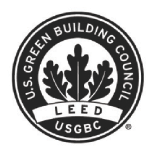
A few tricks by manufacturers include using vague environmental words with no specific certification, focusing on one part of the production process instead of a cradle-to-grave assessment, or claiming something above and beyond that is really just par for the course (such as a “no hormones added” label on poultry, which isn’t allowed to have added hormones, anyway).
Even official seals can be deceiving. Last year, the council in Ocean City cancelled a $1.1 million wood purchase for the city’s boardwalk after residents protested that the timber, though certified by the Forest Stewardship Council, was taken from an ancient rain forest.
So when making an eco-assessment, do some research and look for the right labels. And ask yourself a few questions, including how many of the product’s ingredients are recognizable, where the product or its packaging came from, and where it will go once disposed.
Go ahead and green your wardrobe for St. Patty’s Day. But when it comes to the other kind of green, be sure what you are buying is as eco-minded as you are.

Cradle to Cradle; Green Seal: Unlike random (and hollow) buzzwords such as “green” and “eco-smart,” these seals mean an impartial organization has approved the product as one that has an environmentally responsible life cycle (raw material through disposal). Cradle to Cradle’s zero-waste mentality gives it top credibility on items from window shades to surfboard wax. And since 1989, the Green Seal has indicated minimal waste and toxins in items such as cleaning products, paints, and coffee filters, as well as cleaning services and lodging properties.
mentality gives it top credibility on items from window shades to surfboard wax. And since 1989, the Green Seal has indicated minimal waste and toxins in items such as cleaning products, paints, and coffee filters, as well as cleaning services and lodging properties.

Organic Food: with this seal must meet USDA standards. Crops must not have been treated with prohibited substances in the last three years, and the use of genetic modification, radiation, or sewage sludge is prohibited. Animals must be fed 100 percent organic food and cannot be given hormones or antibiotics. If the packaging says, “100 percent organic,” then it must contain only organically produced ingredients. If it says, “organic,” it must have at least 95 percent organically produced ingredients. “Made from organic ingredients,” means at least 70 percent of ingredients are certified organic.

Recycle: Some companies use this symbol to mean that the product or package is made of recycled materials; others use it to mean that the product or package is recyclable. Look for words such as “100 percent recycled material” or “Made with post-consumer materials” to be sure the product is recycled. The symbol also may just be indicating that the product can be recycled.

Jersey Fresh/Jersey Grown: The Jersey Fresh label on fruits and vegetables and the Jersey Grown label on trees, shrubs, plants, and flowers certifies that the products were not only grown in the Garden State, but also that they have been checked for quality and are disease- and pest-free.

Energy Star: This means the product or building has met the strict energy efficiency guidelines set by the Environmental Protection Agency and U.S. Department of Energy.
Organic Dry Cleaning: The “organic” label here is not as green as you might think, as it often represents volatile organic compounds (VOCs) in dry-cleaning solvents, which are not good for the environment—or you. Though counterintuitive, carbon dioxide cleaning is actually preferable. Even better: Avoid clothes that have the “dry clean only” tag altogether.

LEED: Using a certification created by the U.S. Green Building Council, a LEED-certified building has achieved “points” for energy-efficient and environmental design. A new structure that reuses 10 percent of its materials, for example, gets one point. Twenty-six points achieve LEED certification; higher levels include silver (33 points), gold (39 points), and platinum (52 to the maximum 69 points).

Audubon International: Don’t mix this up with the longstanding habitat-protecting National Audubon Society. Audubon International, formed in 1996, may have good intentions, but the group simply advises land developers to give a nod to the environment. Undisturbed land would still be better for wildlife.
CFC-Free: This doesn’t mean much, since CFCs were banned from all aerosol cans in 1978.
